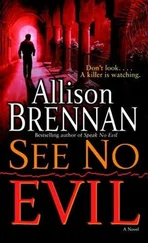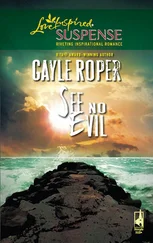July 23
I drove into Cape Town to have lunch with Libby Wiseman. She lives in Tamboerskloof in a blue-painted little house on the slopes of Signal Hill opposite Table Mountain. She lectures in English literature at the University of Cape Town, and her husband Dennis is an attorney who specializes in political prisoners. He does a good job too. Although he fails to keep most of them out of jail, he inflicts maximum embarrassment on the authorities every time, which is what his clients really want. It’s Saturday and Dennis was out playing golf. Libby suggested we go to a restaurant in the Bo-Kaap.
We walked down the hill and then along toward Bo-Kaap. I love the area with its steep cobbled streets, its rows of old brightly painted houses, car-repair shops, mosques with dainty cream-colored minarets, and the smells of Africa mixing with the Orient. It’s segregated: only coloreds live there. “Colored” is a typical South African euphemism: it means people of mixed ancestry, people who don’t fit into neat racial categories. Bo-Kaap is a wonderful celebration of what that word can represent: the genes of Malays, Indians, Europeans, slaves from Guinea and the East Indies, even the original Hottentot inhabitants of the Cape are all jumbled together in a melange of brown skin, high cheekbones and broad smiles. And the food is delicious.
Libby led me to an orange-and-yellow restaurant on the corner of Wale Street with a terrific view of the city and Table Mountain opposite. The morning fog had disappeared and the sun was out, illuminating the gray crenelated battlements of the mountain in a soft winter glow. We exchanged gossip about the other members of the Guguletu Project Committee and she told me a story about one of her first-year students who has somehow gotten George Eliot and Charles Dickens confused and is convinced that Dickens was a woman.
I mentioned the SACP hit list Zan told Neels about. Without giving any hint that she had links to the Communist Party, Libby did say it sounded unlikely to her. Apparently Joe Slovo proclaimed last year that change will come through negotiation, not revolution. But Libby admitted that not all party members would necessarily agree with their leader. Frankly, it still worries me.
I decided to tell her about my suspicions about Neels and another woman. She was sympathetic. She confided that she and Dennis are having their problems too. I told her Daniel Havenga’s description of Stellenbosch as hanky-panky town: it’s full of forty-something women washed up on the shores of failed marriages. What’s so strange about Libby and me joining them? It was good to talk to her, to feel that I have an ally in this goddamned country.
July 25
I went into Stellenbosch with Zan this afternoon. It was a clear sunny day, the old buildings gleamed white, and the few leaves remaining on the oak trees along the sidewalks sparkled gold. We went to Oom Samie’s like we used to when she was a girl. That place is still full of the same old junk, it hasn’t changed. She bought a couple of useless knickknacks and some sticky toffee, I bought some spices and we had a cup of coffee.
We talked about the End Conscription Campaign. Zan said that 150 men have refused the call up so far. I told Zan about the friends of mine who dodged the draft during the Vietnam war and the articles I wrote for Life magazine about the student protest movements in the sixties. She was clearly surprised, and interested. But when I started to ask her about the Black Sash, she clammed up. And when I suggested I could join her on one of her ECC demos, she just shook her head. It bugged me.
“Why didn’t you tell me about the SACP hit list?” I asked her.
Zan looked down into her cup. “I wondered when you’d get around to that.”
“Don’t you trust me?”
Zan shrugged, still avoiding my eyes.
She didn’t trust me. I could understand that, given our past, but I felt, or hoped, that since she had come to stay at Hondehoek we had rebuilt our relationship. I felt like she was my ally, and boy do I need allies. I took a deep breath. “I want to apologize for something.”
Zan’s eyes flicked up.
“What happened with that creep Bernie Tunstall. Perhaps I shouldn’t have told Neels. I know you asked me not to, but I was furious and I wanted him to stop it. You were only fourteen, for Christ’s sake!”
Zan stared back into her coffee.
“Can you forgive me?”
Zan mumbled something.
“Excuse me?”
“I said, I can forget. That’s all I can do. Not forgive. Forget. It’s forgotten.” She looked at me, her eyes angry, confused, sad. “Don’t bring it back. Please.”
“Okay,” I said. “I’m sorry I mentioned it. It’s just that you can trust me, you know.”
She smiled quickly, although I could see she wasn’t convinced.
“Can you at least tell me a little more about the list?”
“I told Pa all I know.”
“But does it really exist? I thought the SACP leadership is talking about peaceful revolution.”
“Oh, it exists, all right. The leaders say one thing for the international press and another for the comrades. There’s a list. Pa’s on it. So are you.”
“And you?”
Zan shook her head. “No.”
“Who told you?”
“Someone...” She hesitated. “Someone who is very fond of me.”
“A man?”
She nodded.
“That you met in London?”
She nodded again.
“And you trust him?”
“Oh, yes,” she said. “I trust him.” Her eyes met mine, warmer this time, more sympathetic. “It came as a shock to me too. A big shock. That, and Uncle Hennie’s death. I mean, in theory I know that the only way this regime is going to change is through violence, and that some people will die, people with the same color skin as me. I can accept that. But when it’s my father... That’s why I want to stay here for a bit. I need to sort all this out in my head.”
You mean you want to have a last visit with your father before your “comrades” assassinate him, I thought. But I didn’t say it. “When you get to London you’re not just going to study at the LSE are you?”
Zan shook her head.
We sat in silence for a while, watching the good burgers of Stellenbosch going about their errands. “Martha?”
“Yes?”
Zan gave me a nervous smile. “When I heard your name was on the list, it didn’t really bother me. But now it does: it bothers me a lot.”
I’ve enjoyed having Zan here, I’ll definitely miss her when she goes off to London. Perhaps she is right, it is best to forget. I still think it was the right thing to do to talk to Neels about Bernie Tunstall. I know she had told me about him in confidence, but how could I not have done something about it? He had, after all, seduced a fourteen-year-old girl. But it was that that marked the deterioration of our relationship. Bernie Tunstall was rich, well connected and smart enough to put up a convincing show of innocence. Penelope believed him rather than her daughter. Zan refused to make a statement to the police and then she was examined by a doctor who confirmed that she wasn’t a virgin. Penelope told the police that she thought Zan had been sleeping with boys, and Zan didn’t deny it. This made Neels even angrier. There was a custody battle for a year. Zan didn’t want to live with us, and Neels refused to let her go back to Penelope, so she spent the term-time at her boarding school and the vacations with her Uncle Hennie at his sheep farm in the Karoo. In the end she went back to Penelope. She still came to visit us occasionally, but she was always angry and surly, and her visits became increasingly awkward.
She swam fast, and I mean really fast. Then when she was seventeen and she beat the Olympic qualifying time, that was when she got really upset. Of course it wasn’t her fault she couldn’t go to the LA Olympics, it was just another consequence of apartheid and, as I told her, not the most important. She couldn’t swim in an international competition but at least she was treated like a human being in her own country, unlike 80 percent of the population. An obvious point, you would have thought, especially for a daughter of Cornelius van Zyl. But she didn’t accept it, she wouldn’t accept it. It was all the fault of the ignorant, narrow-minded Americans, of people like me. I was so angry. Of course I now realize that she was pushing me away, and this was the perfect way to do it. Well, she succeeded.
Читать дальше












